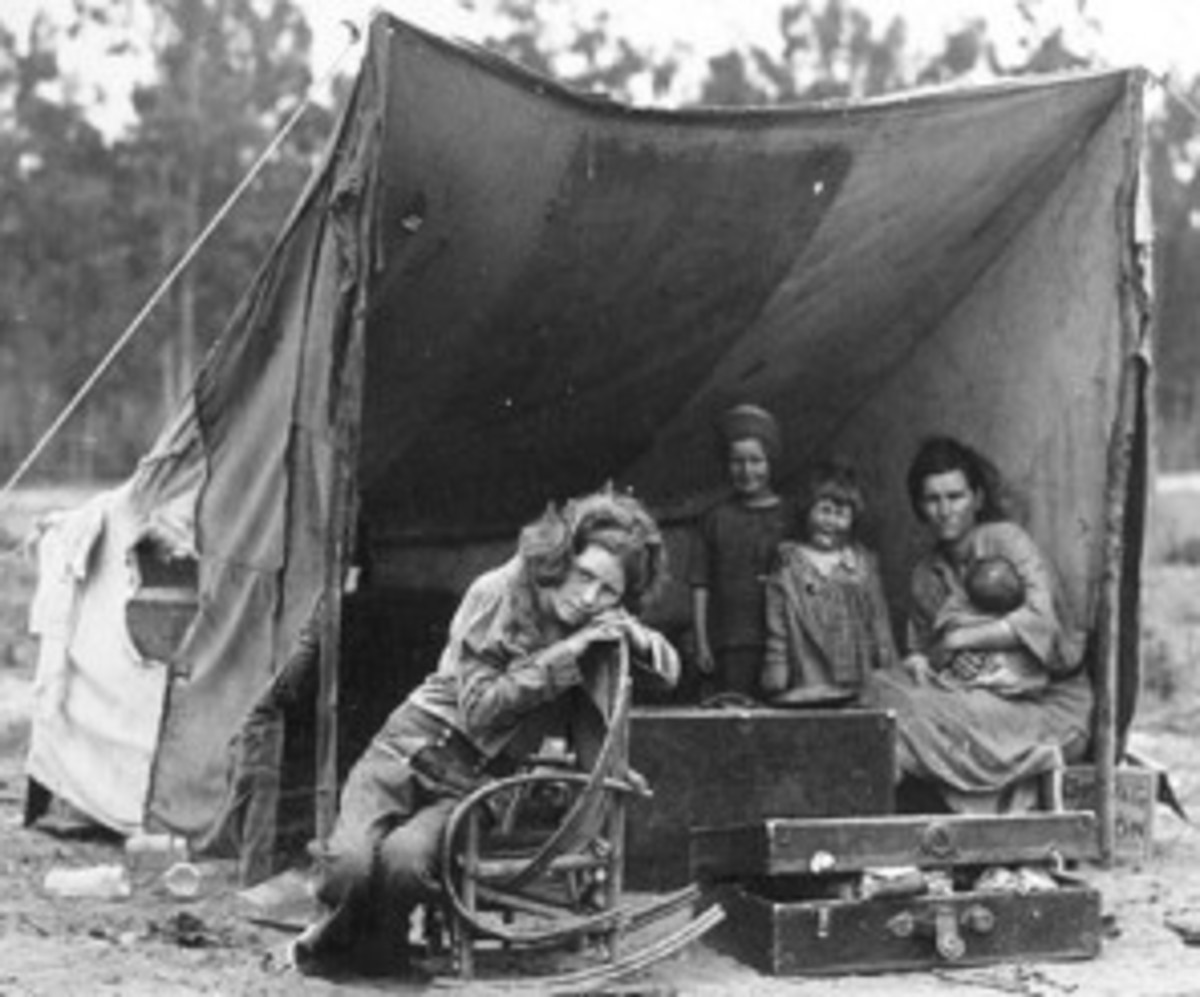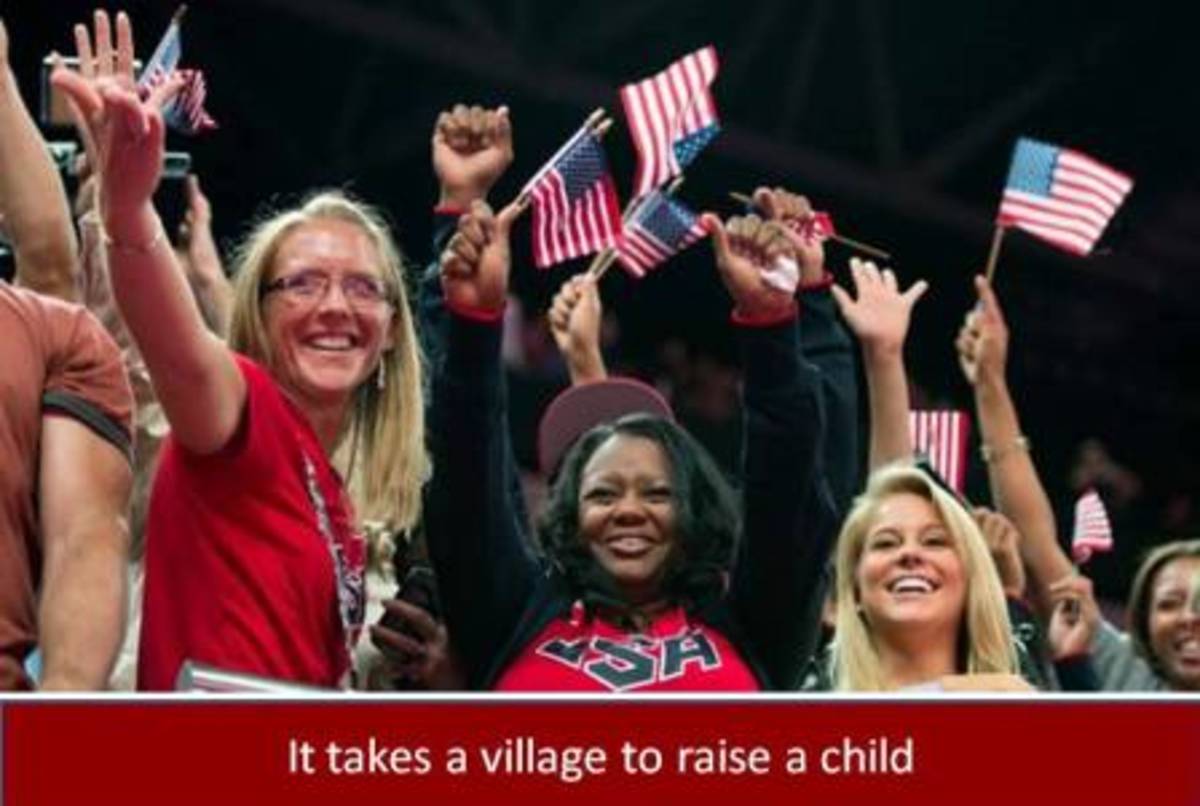Lessons And Red Flags Gleaned From The Tiger Mom Controversy
Lessons And Red Flags Gleaned From The Tiger Mom Controversy
The furor that was sparked by Amy Chua's book titled "Battle Hymn of the Tiger Mother" surprised me at first. As I listened and read more intently, I began to understand the cause of the hysteria. The education scores of American children have been dropping precipitously over the last several years. The United States economy took a major hit in 2008 leaving American parents feeling ever more insecure. China and other Pacific Rim nations have been growing their economies much more rapidly than the U.S. and other western nations. American parents have to work longer hours to make ends meet . They fear that this economy is passing them by and their children will be adversely affected.
These are legitimate fears and there are many aspects of this dilemma. I would like to explore many of these fears and issues while also examining the utility of this extreme "Tiger Mom" parenting method. There are true fears to be dealt with and also exaggerated fears. This is often the case. I will attempt to show in this article the things American parents can learn from Amy Chua's book while also retaining the best aspects of their own more progressive parenting methods. With any luck we may discover a new more effective parenting model.
The basic parenting tenets of the Tiger Mom as described by Amy Chua are for her to be involved in and directing every aspect of her children's lives. She also demands absolute excellence from them. Recreational distractions are strictly prohibited. Television, games, sleepovers, and almost any extracurricular activities are not allowed by the omnipresent Tiger Mom. Any disobedience to her edicts will bring swift and almost draconian punishments. Scholastic grades below an (A) bring strong rebukes from the Tiger Mom towards the offending child. She also demands of her children the development of proficiency in classical music by way of the violin or the piano.
Ms. Chua is a 48 year old Chinese American law professor who was raised by Chinese parents. Therefore she knows both cultures and both methods of child rearing. She has chosen the strict Chinese form of parenting over the Western form. Ms. Chua acknowledges that her way is not the only way to raise children. But for her it was the only way to promote excellence and self esteem in her children. Her husband is a Jewish American law professor who has come to the same point in life by way of the more liberal and permissive Western style of parenting. He acquiesces to his wife's strict upbringing of their children though not agreeing at all with many of her methods. He often acts as a moderating factor on the family relationships. Many times he is a safety valve for their children.
Ms. Chua readily admits that she does not see herself as a role model for other parents. She also offers that moderating some of her parenting methods would have been advantageous in retrospect. She was raised in this "Chinese Way" by her parents and feels it is what made her successful. Ms. Chua also observed during her childhood that many of her classmates were either failing or not living up to their potential because of too many outside distractions and poor study habits. She became determined to not allow this to happen to her children.
Let us now examine the pros and cons of the Western style of parenting. My belief is that American parents are for the most part very involved with their children's lives and scholastics. The major difference is that unlike the Tiger Mom, American parents prefer to give their children more of an opportunity to explore, innovate, and make mistakes. This includes allowing the child to choose most of his or her recreational activities.
Another difference between these two sets of parents is the time each generally has to devote to their children. American and Western parents have had to work increasingly longer hours over the last few decades. Often both parents need to hold down a job just to balance the family budget. As a result, these parents have little time to oversee their children's schoolwork and are often too tired to do so even when they have the time. It becomes easier to allow their children more autonomy and responsibility for their scholastics. Television and the internet often become the outlets to entertain their children.
This is not to say that Western parents are generally callous towards their children's education and lives. But adverse circumstances can certainly influence these relationships negatively. Many wealthier parents are more heavily involved in their children's education and push them from the cradle to achieve excellence. This is similar to the Tiger Mom. They utilize expensive pre-schools to prepare them for elementary school. Elite prep schools are often used as substitutes for public schooling to enhance their children's chances for successful academic performance. Unfortunately they also sometimes use these schools as a surrogate for raising their own children.
As you can see, Western parenting is a mixed bag with many different modes of parenting. These modes usually depend on wealth, time constraints, and the dedication of the parents.
So which culture of parenting is the correct one? Is there a preferred method? My belief is that both forms of parenting are valid and have their strengths and potential weaknesses. The "Tiger Mom" form of parenting was quite similar to Western parenting as it existed before World War II. Children had a very limited amount of recreational distractions as compared to modern times. American family incomes skyrocketed after the war leaving families with a lot of disposable income. Media innovations beginning with television began to be introduced at this same time. Parents felt much more secure and slowly began to indulge their children more. This did not become a problem until the late 1970's when the economy began to pinch the pocketbooks of families. Soon both parents in many families needed to work. The combination of growing distractions and lesser parental supervision became a growing problem that began to adversely affect American children's academic grades.
Contrast this with the Asian parent model. Most Asian countries have recently developed economies. Therefore most Asian parents know with urgency that the key for their children to succeed in this growing and competitive environment is a solid education. Many of these families also have grandparents living within the family unit. They assist with the children and household making it easier for the Tiger Mom to concentrate more on her children's lives and academics. The dedication and discipline being instilled into these children is admirable and very effective. But is there something missing?
Most American parents were raised in the Western style where they were taught to make their own choices and utilize independent thinking. Thus they know from experience that this is one of the ways that children learn responsibility. It is also a key factor in developing innovative and creative minds. My belief is that the discipline and strong direction that the Tiger Mom gives to her children is essential in developing her child's dedication to their academic studies. A child will probably not work hard at his or her studies if the parent does not show interest and urgency in their child's schoolwork. On the other hand, too much control and direction of a child by the parents could lead to the development of a robotic child.
The bottom line is that the Western form of parenting has led to a very creative and innovative society in the United States. We do not want to lose this. All of us must take a step back and realize that we must reassert more direction in our children's lives especially in respect to their academics. The education standing of the U.S. compared to the rest of the world has been slipping steadily. We can not allow this to continue.
Parents must provide a stronger presence in their children's lives no matter what their work situation happens to be. Efforts must be made to go over their children's schoolwork each day for a significant amount of time. This does not mean skimming over their assignments. Ask probing questions of your children concerning their school day and school work. You will still be allowing them the freedom to create on their own while showing them that their academic work is important to you and themselves. You will be combining the best of both worlds of parenting and hopefully finding the ideal method to ensure your child achieves their maximum potential. The key is you must consciously make that effort every day. Your child will remember this in later years and pass this on to their children. They will thank you.







